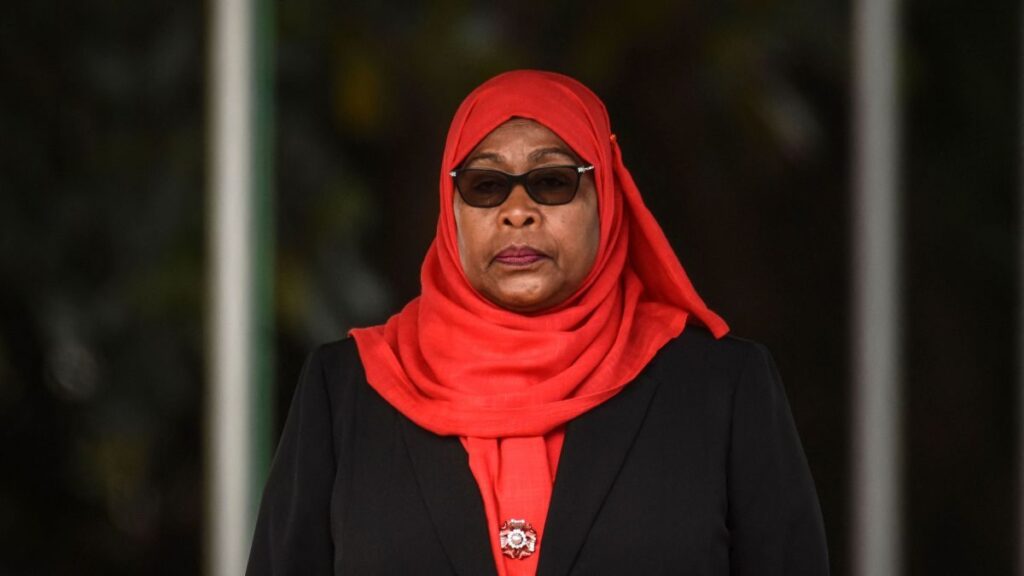Ruto Apologises to Tanzania After Deportation Crisis Sparks Social Media Storm
Diplomatic Tension Rises as Activists’ Deportation Sparks Online War Between Kenya and Tanzania

Kenya’s President William Ruto has publicly apologised to Tanzania following a serious diplomatic dispute that shook the East African region. The tension began after Tanzanian authorities detained and deported prominent activists from Kenya and Uganda, who had travelled to Tanzania to attend the trial of opposition leader Tundu Lissu.
Among those detained were Kenyan activist Boniface Mwangi and Ugandan Agather Atuhaire. Both activists claimed they were held incommunicado for several days, tortured, and then abandoned at the border by Tanzanian security forces.
These shocking allegations caused widespread condemnation from human rights organisations and governments across East Africa.
The incident quickly escalated on social media, where many Kenyans began targeting Tanzania’s President, Samia Suluhu Hassan, with harsh criticism.
This online backlash angered Tanzanian lawmakers, who accused Kenyans of “cyberbullying” and “disrespecting Tanzanian sovereignty.” On Monday, Tanzanian MPs expressed their outrage, saying Kenyans were “meddling in our domestic affairs.”
One Tanzanian lawmaker, Jesca Msambatavangu, revealed that she received so many angry messages via WhatsApp that she had to temporarily switch off her phone.
Despite this, she encouraged young Kenyans to “counter ideas with ideas” and even invited them to form a WhatsApp group for further dialogue. She stressed,
“Kenyans are our neighbours, our brothers, and we cannot ignore each other.“
Msambatavangu also promised to hold a live session with Kenyan youth on Saturday to promote better understanding.
In a move to calm the rising tensions, President Ruto spoke at a national prayer breakfast and extended an olive branch to Tanzania. He said,
“To our neighbours from Tanzania, if we have wronged you in any way, forgive us. If there is anything that Kenyans have done that is not right, we want to apologise.”
He also addressed young Kenyans, known as Gen-Zs, who have been critical of his government since the deadly anti-tax protests last year, saying, “To the young people of Kenya, we hear you, and we apologise for any shortcomings.“
Tanzanian President Samia Suluhu Hassan has not directly responded to the torture claims but had earlier warned that she would not allow activists from neighbouring countries to “meddle” in Tanzania’s affairs or create “chaos.”

Both Kenya and Uganda have formally protested the detention and treatment of their citizens, accusing Tanzanian authorities of denying consular access despite repeated requests.
The diplomatic row has highlighted the challenges of regional cooperation and respect for sovereignty in East Africa. The social media war between Kenyan and Tanzanian netizens showed how quickly public opinion can inflame diplomatic relations.
Some Kenyans even went as far as sharing contact details of Tanzanian MPs, flooding their phones with messages of disapproval.
Despite the heated exchanges, the willingness of Tanzanian MPs like Msambatavangu to engage in dialogue offers hope for reconciliation.
President Ruto’s public apology is a significant step toward repairing relations, but both countries will need to continue working together with mutual respect to prevent similar conflicts in the future.
This episode serves as a reminder of the power of social media in shaping international relations and the importance of peaceful communication between neighbours. As Msambatavangu put it, “We must talk, listen, and understand each other if we want lasting peace and friendship.“
Stay Woke, Stay Tuned. Stay with AKEWE NEWS.




